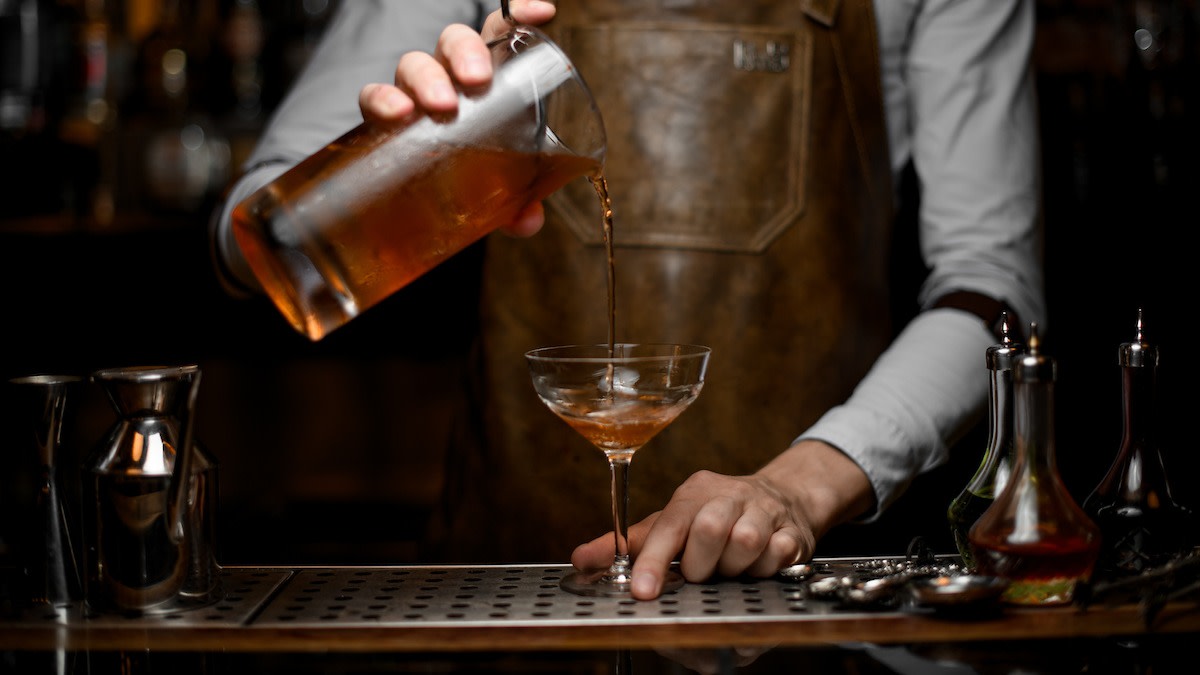What’s the Difference Between a Mixologist and a Bartender?
Written by MasterClass
Last updated: Jun 7, 2021 • 3 min read
Mixology is an exciting discipline that combines an appreciation of classic cocktails and cocktail culture with a desire to create new cocktail recipes with a forward-thinking culinary approach.
Learn From the Best
What Is Mixology?
In cocktail culture the term “mixologist” refers to someone who studies the history of mixed drinks, has a rich appreciation of the ingredients and techniques used, and regularly creates new and innovative mixed drinks.
Mixologist vs. Bartender: What’s the Difference?
The problem with defining “mixology” is that the word is often used interchangeably with “bartending.” There is a large overlap in the skill set required for a great bartender and a master mixologist, but they are distinct roles. A bartender generally works at a cocktail bar making classic cocktails and house specialties, while also interacting directly with customers in ways similar to a restaurant server. Mixologists may work occasionally in a bartending capacity, but their job title implies that they do a significant portion of their job behind the scenes, creating new craft cocktails and putting their signature twist on existing favorites.
What Do Mixologists Do?
Mixologists wear a variety of hats in the hospitality industry. Many mixologists work for a variety of bars and restaurant groups, whereas others own their own bars. Most mixologists do the following:
- Create original cocktail recipes: Mixologists constantly play with drink recipes to create new infusions and creative craft cocktails. Mixologists generally have a full set of standard bar tools at their disposal and often incorporate non-traditional tools in order to introduce unique elements to their drinks.
- Keep up with industry trends: The best mixologists stay abreast of cocktail trends and innovations occurring worldwide. If you’re new to mixology, watching other mixologists and bartenders work is a great way to inspire you as you start creating your own tinctures and concoctions.
- Sometimes work behind the bar: Often a mixologist will serve as the head bartender or the bar manager at a bar. This allows them to supervise bartenders while still devoting a substantial amount of time to crafting new cocktails.
- Appreciate the history of cocktails: Mixologists have a deep appreciation for the history and evolution of cocktails. Mixologists keep an eye on current industry developments but most also mine old cocktail books and periodicals for inspiration.
- Work as a consultant: Many mixologists work as cocktail consultants to develop cocktail menus and programs for a number of different bars and restaurants. Even mixologists who own their own bars will consult for other bar and restaurant groups.
What Do Bartenders Do?
The specific duties and responsibilities of a bartender are taught in bartending school. Bartenders are expected to:
- Make standard cocktails and house specialties: Bartenders must have a working knowledge of how to make all standard cocktails, as well as any in-house specialty cocktails. A customer should be able to order a Manhattan or a Margarita at any bar and be served quickly by a bartender who knows offhand how to make the drinks. Unlike mixologists, bartenders are not expected or required to spend time developing their own recipes for cocktails.
- Work quickly and manage crowds: Efficiency and calmness under pressure are skills that all bartenders must possess. A bartender should be able to work in a crowded bar and serve drinks quickly to keep up during rushes.
- Have good customer service habits: Bartenders are expected to be personable and able to converse with customers, especially during slower periods. The classic notion of a bartender is someone who will fix you a drink and listen to your problems. Though this may be hard to do in a crowded nightclub, bartenders are still expected to be friendly and social people.
- Maintain the register and bar stock: Keeping a balanced cash register and maintaining bar stock are two important logistical jobs that bartenders have. Bartenders need to have good skills behind the register in order to prevent accounting errors or inadvertent losses. A well-stocked bar ensures the continuity of service even during busy times.
Learn More
Learn more about mixology from award-winning bartenders. Refine your palate, explore the world of spirits, and shake up the perfect cocktail for your next gathering with the MasterClass Annual Membership.
